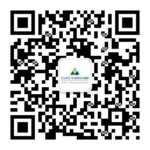
Ungrading and Related Practices by Prof. Susan D. Blum
In this talk, Susan D. Blum introduces some of the principles behind the growing practices united under the umbrella of “ungrading”--calling into question the centrality of conventional grading practices. She also talks about many concrete practices that she and others use to implement ungrading–leading to greater learning, engagement, and equity.
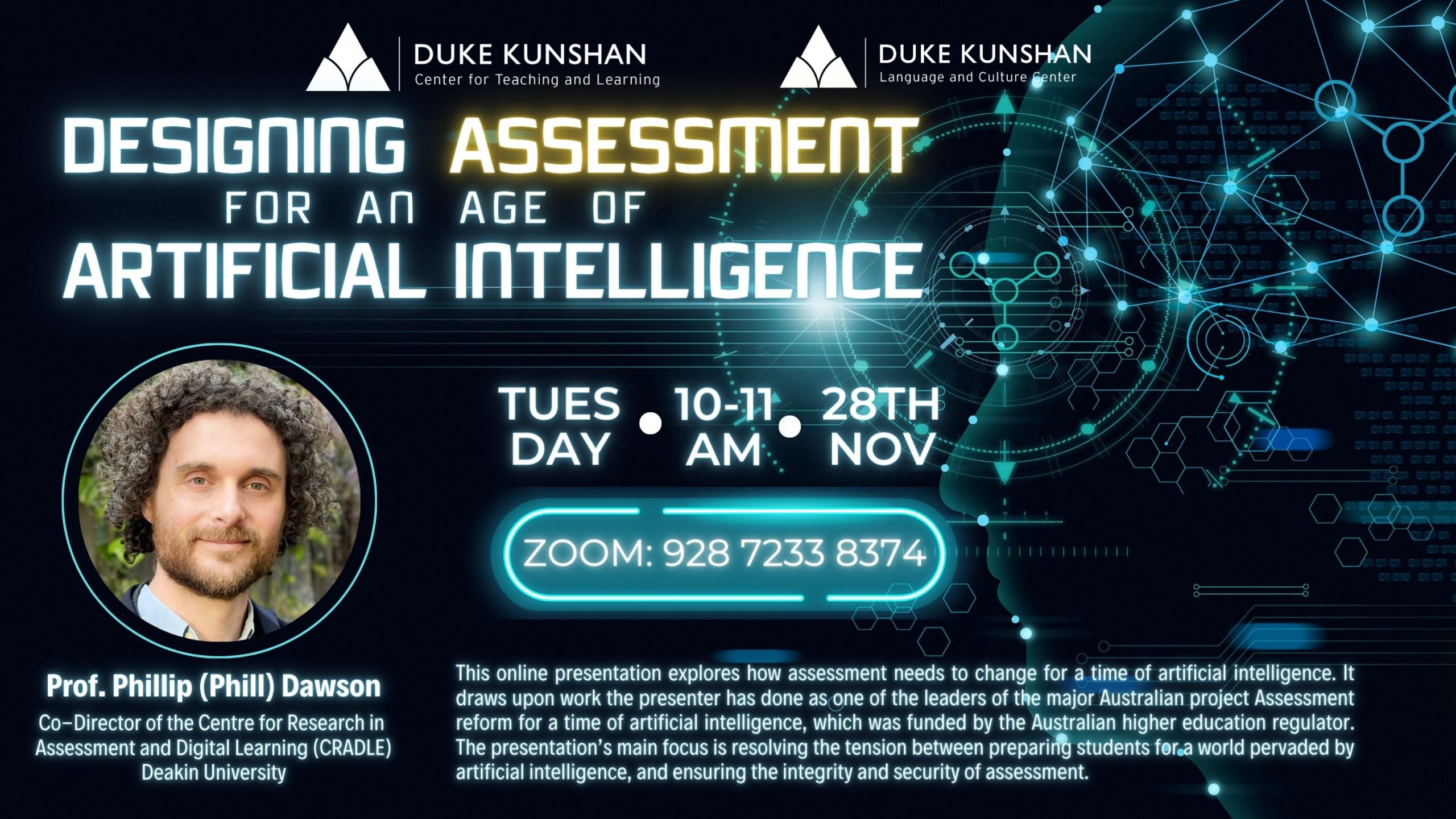
Designing Assessment for An Age of AI by Prof. Phillip (Phill) Dawson
As AI grows increasingly capable of passing high-stakes tests, concerns mount over AI-enabled cheating and the sustainability of current assessments. In this talk, Prof. Dawson draws on his leadership of a major Australian project on assessment reform in the AI era. Focused on resolving tensions between readying students for an AI-powered world and ensuring assessment integrity, he explores how assessments must adapt for these changing times.
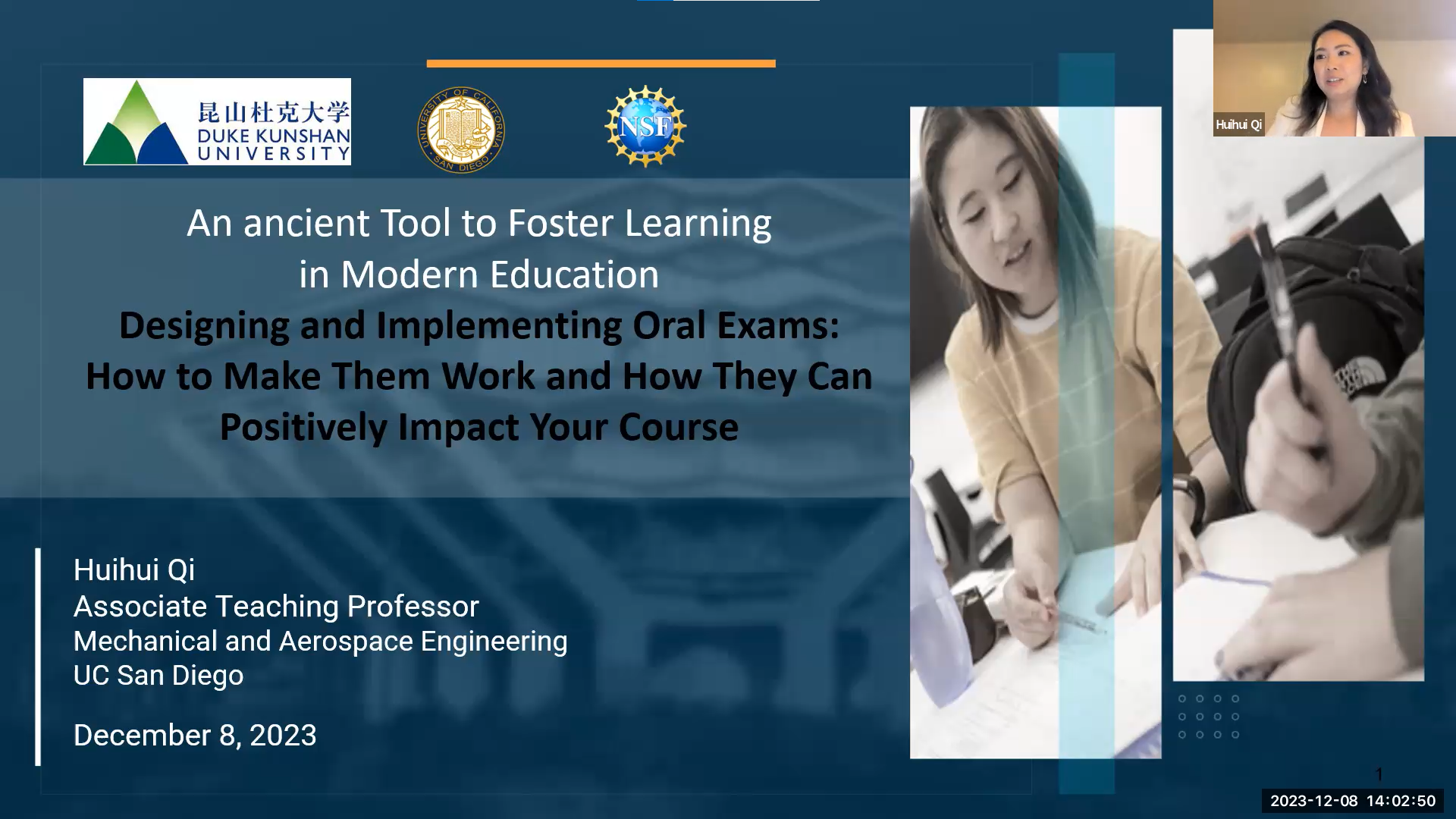
Oral Exams: An Ancient Tool to Foster Learning in Modern Education by Dr. Huihui Qi
In this talk, Dr. Huihui Qi will delve into the findings of an NSF-funded project focused on using oral exams to enhance students’ learning experiences. She will discuss the multifaceted advantages of oral exams, considering them as both an assessment tool and a feedback mechanism, and exploring their affective benefits. Furthermore, Dr. Qi will share her team’s experiences and resources developed to address the scalability challenges of oral exams. Finally, she will provide insights into the practical aspects of implementing oral exams, covering logistical preparations, strategies for preparing students effectively, and more.
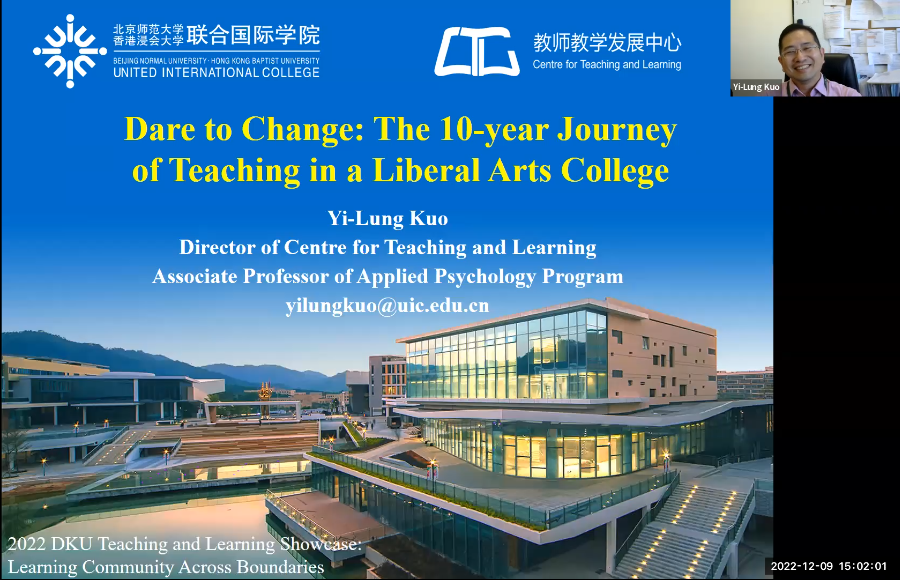
Dare to Change: The 10-year Journey of Teaching in a Liberal Arts College by Dr. Yi-Lung Kuo
“Every Student Succeeds” is not just a slogan- it is the mission for all teachers who could use effective teaching strategies to empower their students. This presentation aims to share personal hands-on digital learning and teaching experiences based on the outcomes-based teaching and learning over the past ten years at BNU-HKBU United International College (UIC). In addition to various assessment approaches (e.g., assessment for, of, as learning), several e-learning strategies and examples using Moodle to engage students and promote student participation and cooperative learning behaviors will be introduced.
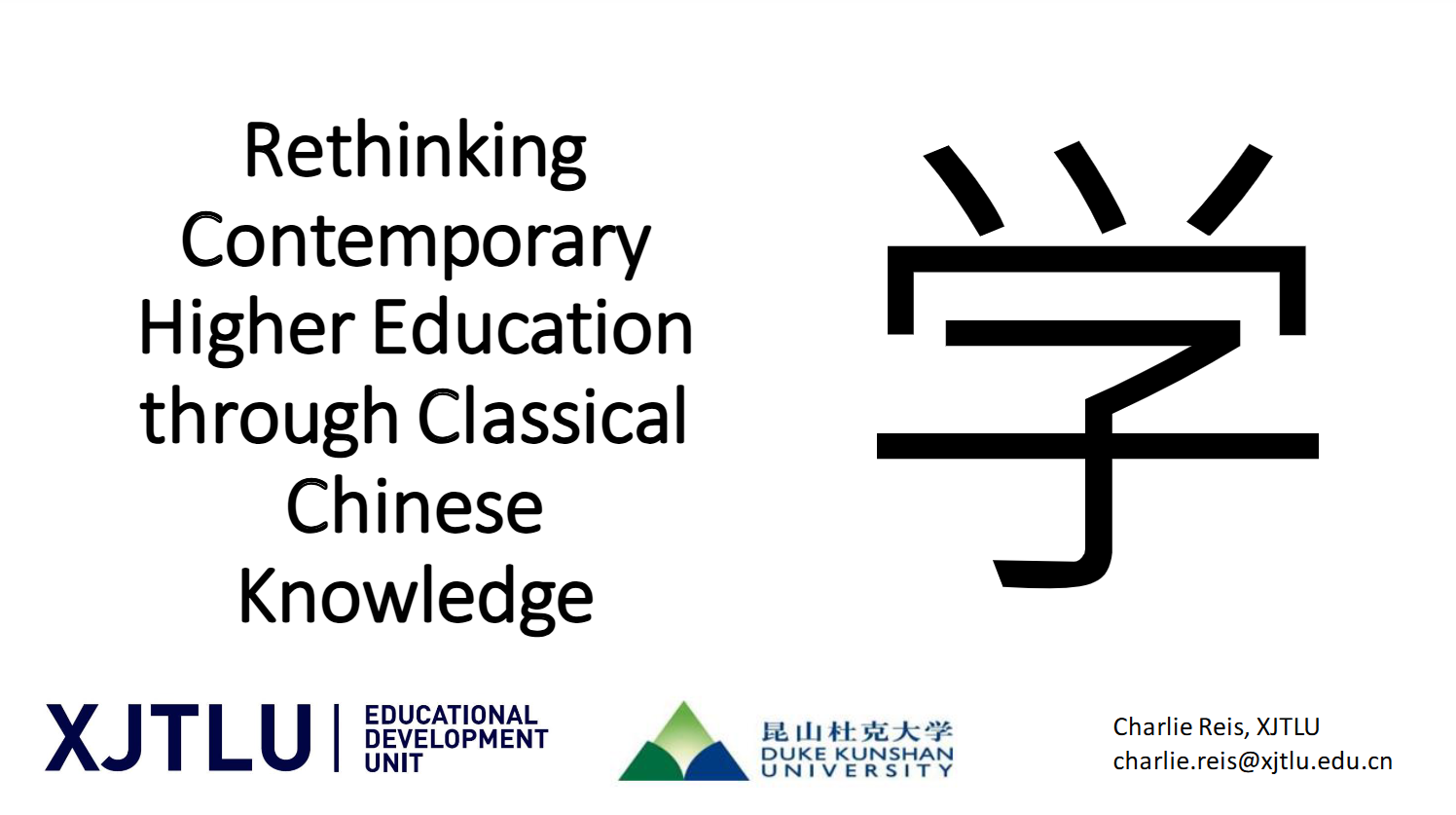
Rethinking Higher Ed with Classical Chinese Thought by Charlie Reis
Charlie Reis’ talk will focus on how he uses Classical Chinese knowledge to inform educational and teacher development at XJTLU. He will cover why it is important to engage with Chinese themes and traditions when working in China, mutual recognition at cultural crossroads, and how his work aligns with ‘decolonising the curriculum’. Specific issues covered will be: approaching Confucian values in learning and teaching, a Confucian framework for learning and teaching, the Daoist concept of wu wei as a pedagogical concept and using ‘knack passages’ from Zhuangzi to articulate teacher development. There will be a Q&A following.


